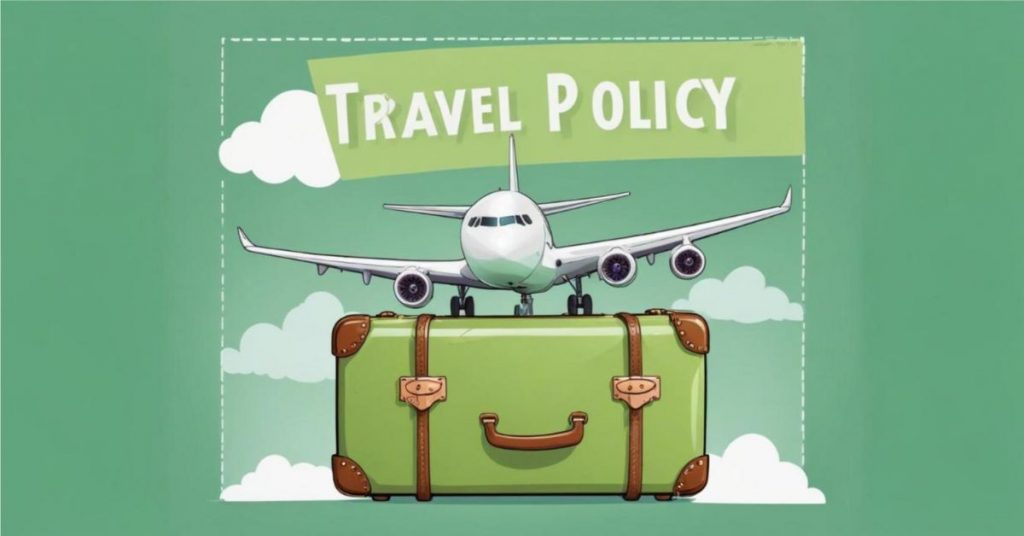In today’s fast-paced corporate world, efficient travel management is crucial for maintaining business productivity and controlling costs. Booking flights strategically for corporate travel can make a significant impact on both time and budget, ensuring that your team moves efficiently without unnecessary expenses. This guide provides practical tips to help businesses streamline their flight booking processes and maximize savings.
Establish a Corporate Travel Policy

One of the first steps in smart corporate flight booking is developing a clear and comprehensive travel policy. A well-defined policy provides guidance on budget constraints, preferred airlines, seat classes, and booking procedures. It helps employees make decisions that align with company goals and ensures consistency across all travel arrangements.
Having a policy in place also allows companies to monitor travel expenses effectively. Tools for tracking adherence to the policy can ensure that bookings are made within guidelines, reducing the risk of overspending or last-minute, costly bookings.
Use Corporate Travel Platforms

To make flight booking smoother and more efficient, it’s worth investing in specialized corporate travel platforms. Tools like Concur, Egencia, and TripActions provide seamless integration of booking systems, expense management, and real-time data. These platforms simplify travel arrangements, offering employees quick access to flight options while automating approvals and expense reports.
Many corporate travel platforms also offer features like fare comparison, budget enforcement, and loyalty program integration, making it easier to manage the entire travel process from booking to reimbursement.
Book Flights in Advance

Timing is everything when it comes to flight bookings. One of the easiest ways to save money on corporate flights is by booking early. Airlines typically release seats months in advance, and the earlier you book, the more likely you are to secure lower fares.
For business travel, it’s best to aim for booking at least 3 to 6 weeks before the trip, especially for international flights. Tracking tools, like Google Flights or Hopper, allow you to monitor fare trends and set up alerts for price drops, ensuring you don’t miss out on deals.
Leverage Loyalty Programs and Corporate Discounts

Corporate loyalty programs are a win-win for both employees and businesses. Companies can accumulate miles or points on behalf of employees, which can be redeemed for future travel. Additionally, airlines often offer exclusive deals or upgrades for frequent corporate customers.
Businesses can also negotiate corporate discounts with airlines, especially if they book a high volume of flights. These negotiated rates offer significant savings over standard ticket prices, making them an excellent way to cut costs without compromising on service.
Consider Flexible Travel Dates
Another smart strategy for corporate flight bookings is being flexible with travel dates. Often, shifting a flight by just a day or two can result in substantial savings. Mid-week flights (Tuesdays and Wednesdays) are generally cheaper than those at the beginning or end of the week.
Using fare comparison websites and tools like Skyscanner or Kayak allows you to view price fluctuations over different dates, helping you find the most cost-effective options for business travel.
Opt for Non-Refundable Tickets (with Caution)
Non-refundable tickets are usually cheaper than refundable ones, but they come with restrictions. For corporate travel, this option can be considered when there is a high level of certainty about the trip. However, it’s important to be aware of the airline’s cancellation or change fees.
Travel insurance is a good backup plan for non-refundable tickets. It can provide coverage in case of trip cancellations, offering peace of mind for business travelers who may face last-minute changes.
Avoid Premium Services Unless Necessary
While business class and premium services can be tempting, they are not always necessary for short or routine business trips. Opting for economy class and avoiding extras like seat selection or additional baggage can lead to significant savings over time.
However, for long-haul flights or trips that require key employees to arrive rested and ready, premium services may offer value. Consider the purpose of the trip before deciding on the level of service needed.
Make Use of Travel Management Tools
Corporate travel management tools are essential for tracking flights, expenses, and compliance with travel policies. These tools can automate the booking process, ensure employees book within the company’s guidelines, and provide reports on travel expenses for accounting and auditing purposes.
Using tools like TravelPerk or Expensify can streamline the process of booking, approving, and managing flights, saving both time and effort for employees and the finance team.
Conclusion
Smart flight booking practices can make a significant difference in managing corporate travel efficiently. From establishing a robust travel policy to leveraging corporate discounts and loyalty programs, there are numerous ways to optimize the process. By incorporating these tips, businesses can not only save time and money but also ensure that their travel arrangements run smoothly.
FAQs
What is the best time to book corporate flights for lower prices?
For corporate flights, the best time to book is typically 3 to 6 weeks before the departure date. This ensures that you get reasonable rates while avoiding last-minute price surges.
How can businesses negotiate better rates with airlines?
Businesses can negotiate better rates by establishing corporate agreements with airlines. This involves negotiating special rates based on the volume of travel your company conducts, and many airlines offer loyalty discounts for frequent corporate travelers.
Should companies opt for refundable or non-refundable tickets?
Non-refundable tickets are cheaper and should be considered when there is a high level of certainty about the trip. Refundable tickets are more flexible but come with higher costs. Companies should assess the nature of the trip and choose accordingly.
Can employees use personal miles for corporate travel?
This depends on the company’s travel policy. Some businesses allow employees to use personal miles for corporate flights, while others require that company bookings remain separate from personal reward accounts.
Are corporate travel platforms really necessary for booking flights?
While not mandatory, corporate travel platforms can save a lot of time and effort. They streamline the booking process, ensure compliance with company policies, and offer tools for tracking expenses and managing travel approvals.
How flexible should travel dates be to get the best rates?
The flexibility of even 1-2 days can significantly reduce flight costs. Mid-week flights are generally cheaper, and you can use fare comparison tools to see how different dates affect pricing.
What tools can companies use to manage corporate travel bookings?
Popular corporate travel management tools include Concur, TravelPerk, and Egencia. These platforms offer integrated solutions for booking flights, managing expenses, and ensuring policy compliance.




